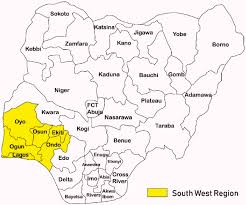The Southwest region of Nigeria is currently grappling with growing concerns over governance and security, as public dissatisfaction mounts over leadership performance and resource management. This discourse has been intensified by prominent voices such as human rights lawyer and Senior Advocate of Nigeria (SAN), Femi Falana, who has openly criticized government mismanagement and reckless spending by the region’s leaders.
Sharp Critiques and Public Concern
At a recent national conference held in Abeokuta themed “Regional Justice, Security and Sustainable Development,” Femi Falana delivered a stinging rebuke of Southwest governors for what he described as prioritizing personal interests over the welfare of their constituents. He cited specific examples including Oyo State Governor Seyi Makinde’s proposal to spend N63 billion on Government House rehabilitation, arguing that such funds would be better spent on vital public infrastructure like roads and electricity. Similarly, he criticized Lagos State’s House of Assembly for excessive spending on utility vehicles, despite glaring neglect in emergency responses to crises such as flooding in Ikorodu.
Falana also highlighted the deteriorating state of education across the Southwest, noting that no state had recently accessed Universal Basic Education Commission (UBEC) funds fully, contributing to millions of children being out of school. Coupled with infrastructural neglect and the privatization of public goods, these challenges have fueled the rise of youth gangs and insecurity in urban and rural communities alike.
Broader Implications for Governance and Security
Beyond the Southwest, Nigeria faces a broader governance crisis marked by weakened state presence and legitimacy. Many regions are becoming “ungoverned spaces,” where governmental authority is supplanted by insurgents or criminal groups. This situation exacerbates insecurity, undermines the rule of law, and restricts development opportunities.
Research into public sector leadership styles further shows that autocratic or laissez-faire approaches hamper efficiency, employee motivation, and innovation—essential ingredients for effective service delivery and governance. Without transformational leadership that embraces accountability, transparency, and community engagement, Nigeria’s governance challenges risk deepening.
Pathways to Renewal and Peace
Experts and civil society call for urgent reforms including:
-
Stronger fiscal discipline and prioritization of public welfare over personal gain
-
Enhanced transparency and accountability in public spending
-
Improved collaboration between government and grassroots communities
-
Investment in education, infrastructure, and security as foundational to development
-
Adoption of visionary leadership models aimed at motivating public servants and restoring citizen confidence
Restoring good governance in the Southwest and across Nigeria is critical for addressing the interlinked problems of insecurity, social unrest, and stalled development.
The criticisms voiced by Femi Falana capture a widespread frustration with leadership deficits and governance failures in Southwest Nigeria. These challenges reveal deeper structural weaknesses that must be addressed through comprehensive reforms and committed leadership focused on the people’s welfare. Only by bridging the gap between authority and accountability can Nigeria hope to foster sustainable peace and prosperity in the region and beyond.
More than news- Its Icegate

